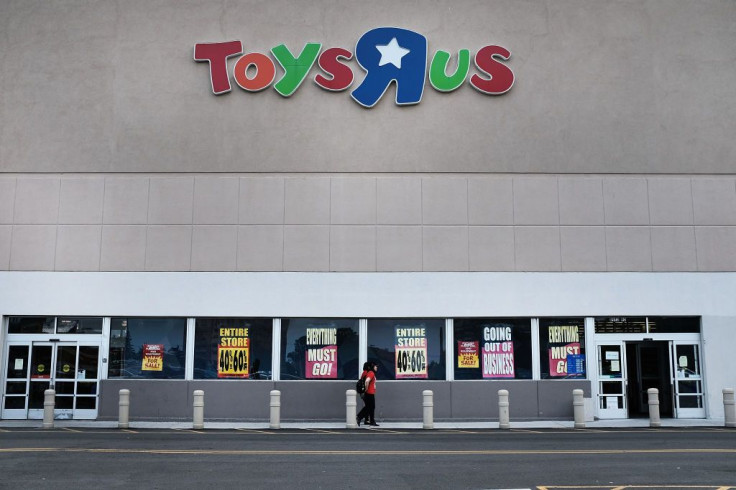What A Toys R Us Comeback May Mean For Retail

Can a Toys R Us comeback revive the U.S. toy market? The company that bought Toys R Us' intellectual property portfolio out of bankruptcy is counting on the brand's enduring goodwill with consumers to help it hit the ground running.
Numerous retailers including Walmart (NYSE:WMT) and Target scrambled to expand shelf space for toys after Toys R Us was liquidated, and Amazon.com (NASDAQ:AMZN) even sent out its first toy catalog. Yet U.S. toy sales still fell by 2% last year to $21.6 billion, according to NPD. The impact was most noticeable on toy makers Hasbro (NASDAQ:HAS) and Mattel (NASDAQ:MAT), which reported fourth-quarter revenue declines of 13% and 5%, respectively.
The return of a retail outlet dedicated to the playroom might be what these manufacturers need, but Toys R Us -- now part of a new company called Tru Kids -- has a high hurdle to get over if it wants to make a difference.
A Heavy Emphasis On Foreign Markets
The market watchers at NPD Group say the U.S. toy market put in a solid performance last year, considering that many analysts had forecast sales could fall at a double-digit rate. Although the 2% decline broke a streak of four straight years of growth, sales were still higher in 2018 than they were two years earlier.
This suggests that Tru Kids won't have an easy time going up against the retailers that filled the vacuum caused by Toys R Us' demise. Walmart, for example, reported exceptionally strong fourth-quarter results and said that toys were one of its strongest categories last quarter, as it gained market share.
Tru Kids' strategy appears to put a lot of emphasis on international sales. While Toys R Us has disappeared in the U.S., it remains operational in many foreign markets -- particularly in Asia, where it operates more than 550 stores, with 182 locations in mainland China alone. It plans to open 60 new stores in the region this year, with most of them in China.
Yet Toys R Us Asia is not a part of Tru Kids, though the two will partner through Toys R Us Asia's owner, Fung Retailing, to expand the brand's presence there. Similar partnerships with affiliates in the United Arab Emirates, Israel, South Korea, India, and elsewhere could extend its reach beyond the 900 stores globally that generated some $3 billion in sales last year.
The US Strategy Is Less Clear
While that's a sizable platform to grow on, Tru Kids' intentions here in the U.S. are more nebulous. It may seek a combination of permanent stores, pop-ups, and e-commerce sales -- possibly even partnering with Amazon. However, no real strategy has been outlined, so toy makers can't expect much help in the near term.
Hasbro saw its full-year 2018 sales fall 12% to $4.6 billion, while Mattel's sales were down 8% to $4.5 billion. Hasbro's adjusted earnings plunged nearly 30% year over year, and Mattel reported another full-year loss, albeit slightly narrower than its 2017 loss.
Although Tru Kids' brands still have a lot of consumer goodwill, the Toys R Us bankruptcy was brought about in part because shopping habits had changed and the toy store failed to adjust sufficiently. Nostalgia alone won't be enough to forge a winning path, particularly as consumers have now found new outlets to visit.
The Key Takeaway
A Toys R Us revival may give everyone the warm fuzzies, but it's not going to alter the retail landscape very much. Walmart will continue to build on its newfound strength, and Amazon has a near-limitless ability to carry inventory through third parties. While Hasbro and Mattel won't mind the help of Tru Kids, they will still need to rely primarily upon new movies hitting theaters -- driving licensing revenue and related toy sales -- to achieve meaningful growth in the immediate future.
Just a few years ago, Toys R Us was the third-largest toy seller in the U.S., with a 15% share of the market. However, other retailers have largely closed the gap left by its bankruptcy, making it less certain that its comeback as Tru Kids will have much impact, if any.
This article originally appeared in the Motley Fool.
John Mackey, CEO of Whole Foods Market, an Amazon subsidiary, is a member of The Motley Fool's board of directors. Rich Duprey has no position in any of the stocks mentioned. The Motley Fool owns shares of and recommends Amazon and Hasbro. The Motley Fool is short shares of Hasbro. The Motley Fool has a disclosure policy.




















